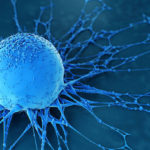Three Effects of Fitness Routine on PSA Levels in Men
The blood test for prostate-specific antigen (PSA) is used in the early screening for prostate cancer. It is used to monitor the development of the disease for those who were already diagnosed as well as help in the diagnosis process of prostate cancer. A healthy fitness routine has been shown to have a positive effect on the PSA levels in men, as well as helping manage the symptoms from high PSA levels.

There is potential for men living with prostate cancer to increase their own survival by staying physically active.
While it has been recorded that immediately after intense exercise PSA levels might increase for a short period, the overall benefits from a fitness routine can help to manage and strengthen the effects of heightened PSA levels in the following ways:
Maintaining a healthy weight
Obesity has been tied to increased aggressiveness in prostate cancer, sometimes doubling the risk of death and quadrupling the risk of recurring metastasis. Therefore, maintaining a healthy weight through an exercise routine will help to lessen the aggressiveness of prostate cancer, by avoiding levels of obesity.
Lower risk of Aggressive Cancer
Regular exercise and physical activity can help reduce the risk of aggressive prostate cancer, even if it is just by walking for three hours each week. This exercise can lower the risk of aggressive prostate cancer by 86%.
By walking for three hours or more a week, or by participating in vigorous exercise, the risk of prostate cancer death is lowered by 61%.
Reduced anxiety and fatigue

When fighting against a disease such as prostate cancer, your body needs to be strong and willing to overcome the disease. A regular fitness routine helps to reduce fatigue and anxiety, which are both side effects of cancer and certain cancer treatments.
By maintaining a healthy body and mind, you will be more ready to fight off the cancer.
Your body will be in good shape, and the exercise will help reduce the aggressiveness of the cancer and its effects.












More Stories
Exercising to Combat Erectile Dysfunction
A Few Exercises For Your Prostate
Threatened With A Potential Stroke, Marc Changed Immediately